Domestic violence is a problem that affects all communities. In the Arab American community, however, it is also taboo, always kept behind closed doors because culturally, it is a shame to let the people know what’s going on at your home.
But awareness about domestic violence is increasing. In fact, some women in the Arab American community of Chicago are adding a clause to their Islamic marriage contract stating that they will go to the police if their husbands abuse them.
Sheikh Ahmed Arafat, a part time Imam at The Mosque Foundation in Bridgeview, said a couple came in a few days ago to receive their Islamic marriage certificate, and the woman put a condition on the contract that stated, “in the case of physical abuse the wife surely will call the police,” Arafat said.

According to Islamic law (Shari’a), both the husband and wife can put any condition they want in the marriage certificate (prenuptial agreement), and both sides have to agree to it. Similar to people of other faiths, in addition to being married in a civil court, Muslim couples go to the Mosque or a Sheikh to obtain an Islamic marriage certificate.
“Marriage, particularly in Christian and Islamic communities, is considered a religious act,” said Azam Nizamuddin, president of the Muslim Bar Association of Illinois and adjunct professor of theology at Loyola University.
“Regardless what the government thinks about marriage, Muslims and Christians will always engage in religious, social practice,” said Nizamuddin.
Nareman Taha co-founder of Arab American Family Services (AAFS) said, “the biggest problem we are facing in providing services to the Arab community, is the culture of denial.”
“We as a society allowed it to happen,” Radhika Sharma-Gordon, Outreach and Education Manager at Apna Ghar, said. “There was not one typology of abuse, we as societies and cultures are allowed to think it is all right to use whatever power and advantages they have over another person in their lives and try to control them.”
Every community has this issue and how every community responds to it differs, Radhika-Gordon said, adding, “It is seen everywhere in every culture and all socioeconomic levels.”
Domestic violence is a pattern of abusive behavior in any relationship that is used by one partner to gain or maintain power and control over another intimate partner. Domestic violence–according to the U.S. Department of Justice definition–can be physical, sexual, emotional or economic, but also psychological actions or threats of actions that influence another person.
Arab American Family Services, which started in 2001, handled 377 new domestic violence cases last year, said Aysha Shalabey, one of the agency’s lead victim advocates.

All were considered successful, she said, because the women broke the silence and came forward to talk about their abuse; and they now know what options they have if the abuse continues in the future.
“We had cases; we go to the moon and back [to help the victims],” Shalabey said, adding that sometimes even when they’re successful, the victim comes and says she wants to go back to her husband.
The agency created its domestic violence prevention department after it launched in ’01. The agency describes itself as both bilingual and bi-cultural, and empowering to Arab-American and Muslim women through advocacy, according to its website.
The agency also works with local Chicago-area police departments to inform them about the Arabic culture, as well as cultural sensitivity training, when dealing with cases in that community.
An Arab-American police officer, who preferred not to use his name, said that during his 10 years on the force, he’s dealt with a dozen domestic violence cases involving the Arab community. Most of the time, the victims would not sign a complaint for “personal reasons.”
“They just want the husband out of the house,” the officer said.
There are also some instances when the women who have reported a domestic violence case will not press charges. Instead, they choose to seek counseling at their local mosque.
This is an Arab tradition deeply ingrained in the Arab culture, as people prefer to solve their problems away from official authorities. They’ll instead choose a mediator who is either an elderly family member or a religious leader, such as the Sheikh in their local mosque.
Shalabey said a police officer from the Village of Hickory Hills reached out to her recently to better understand the role of the mosque in physical abuse cases. This refers to cases where individuals will tell the police department that they will solve the problem at the mosque. That officer, Shalabey recalled, also mentioned in his message that the mosque called them back and updated them on the case.
The Arab American officer said his presence in the police station helps his colleagues better understand Middle Eastern culture when they receive a call involving domestic violence situations in the Arab American community.
As for the victims, it’s not easy for them to leave or call the police, said Ibteesam Asfour, a victim advocate at Arab American Family Services.
“It takes a lot, and it does not happen right away,” said Asfour, who got her bachelor’s degree in management while in Jordan. During her U.S. stay, she’s completed many training programs about domestic violence and social justice.

“Why am I involved is a question that I ask myself, and the answers come from my clients when I realize the difference my services make,” Asfour said.
The Arab women, she added, “graduate” from their fathers’ homes to their husbands’ house–their family has always protecting them. “Asking a woman, who’s never made a decision on her own [and] never worked for herself; to do so, suddenly, is often difficult,” Asfour said. “And now you are expecting her to make a decision, NO!”
Asfour said her agency’s’ hotline receive calls from different counties in Illinois and from out of state as far away as Maryland, New York, and California. Asfour said she once received a call from France; a relative was calling on behalf of a victim.
Asfour added that supportive family members and friends also know that the victim should leave the abuser. But because the victim has been in the “circle of violence” so many times, the victim does not realize she should go. “We make the point: she should call because it is her decision,” Asfour said.
Along with Arab American Family Services, The Mosque Foundation, a nonprofit support agency located in Bridgeview, also deals with domestic violence cases in the community.
While both agencies do a good job with these cases, AAFS co-founder Nareman Taha said she wished the two organizations were able to better work with one another, though there have been occasions when the foundation has referred victims to her.
Asfour, however, said that her agency takes a different approach than the foundation–preferring not to try and make the abusers “more religious” and, therefore, a better person who won’t abuse in the future.
Despite their different approaches to dealing with domestic violence cases, both organizations agreed that the police should be contacted immediately.
“When they come to us, we tell them to call the police,” said Arafat, who recalled witnessing a lot of divorces resulting from domestic violence disputes. He also stressed that it is a woman’s right in Islam to ask for a divorce if her husband treats her cruelly.
He acknowledged that abuse is often not only physical but also emotional, as some men will use Islamic law to torment their wives.
Arafat said some husbands tell their wives that although they have been legally divorced in an American court, she’s still his wife according to Islamic law.
Muslim Bar Association of Illinois President Azam Nizamuddin said this is also a problem in other communities, including Catholic Christians and Orthodox Jews.
According to data from the federal Bureau of Justice Statistics from 2002 to 2011, of the roughly 3,000 homicide cases involving females in 2010, 39 percent were committed by an intimate acquaintance, while 37 percent were committed by a non-intimate. Sixty-seven percent of females were “physically victimized” by an intimate.
Still, domestic violence is not solely a Muslim problem, Sheikh Arafat said, because it exists in every race and religion. He doesn’t recognize it as a significant issue within the Arab community either, which he credits to the community’s high level of education and professionalism. But, he said it is more prevalent in families with little or no education.
Arab American Family Services is in the process of setting up a medical advocacy program in hospitals, where even if the woman doesn’t want to come forward, she’ll have access to resources, Shalabey said, adding “We are there, we can see.”








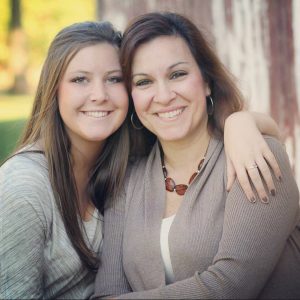
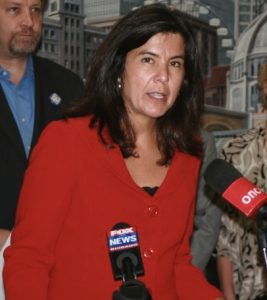
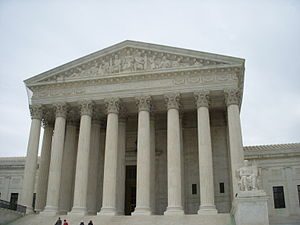
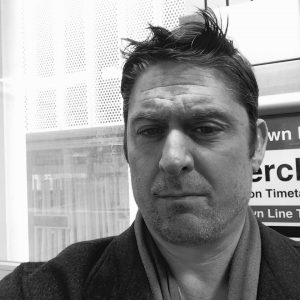





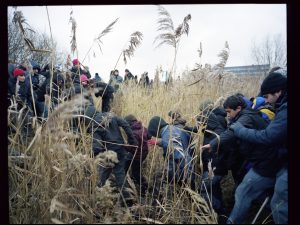


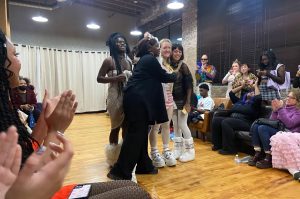
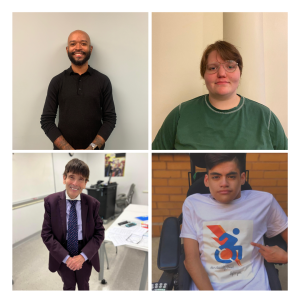
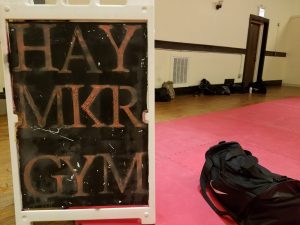
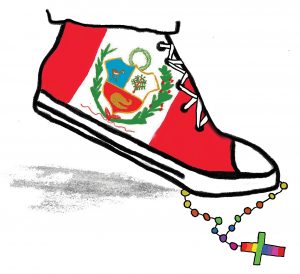

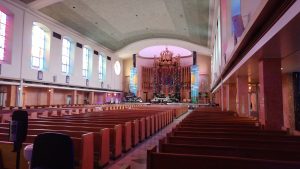

Be First to Comment